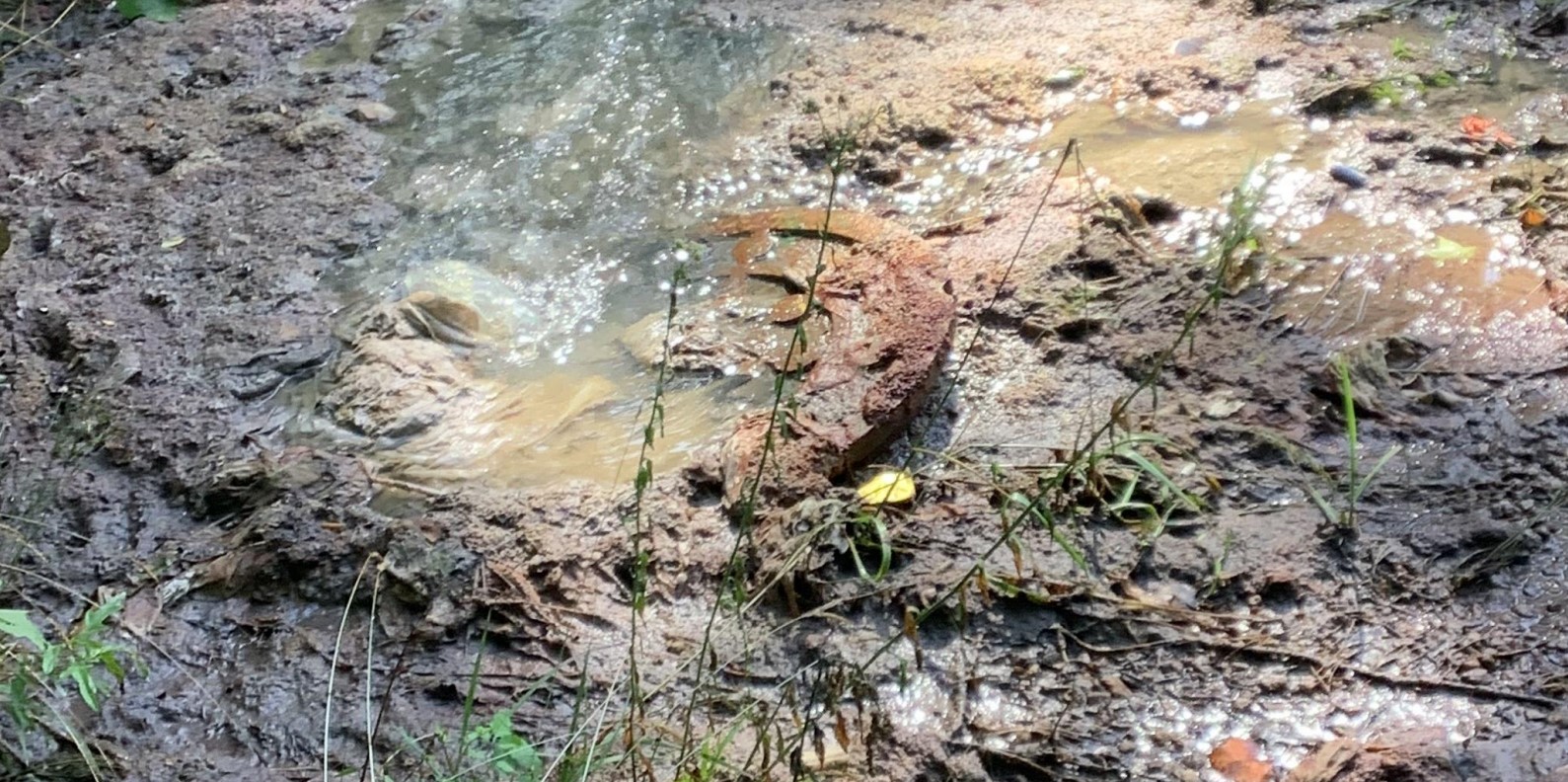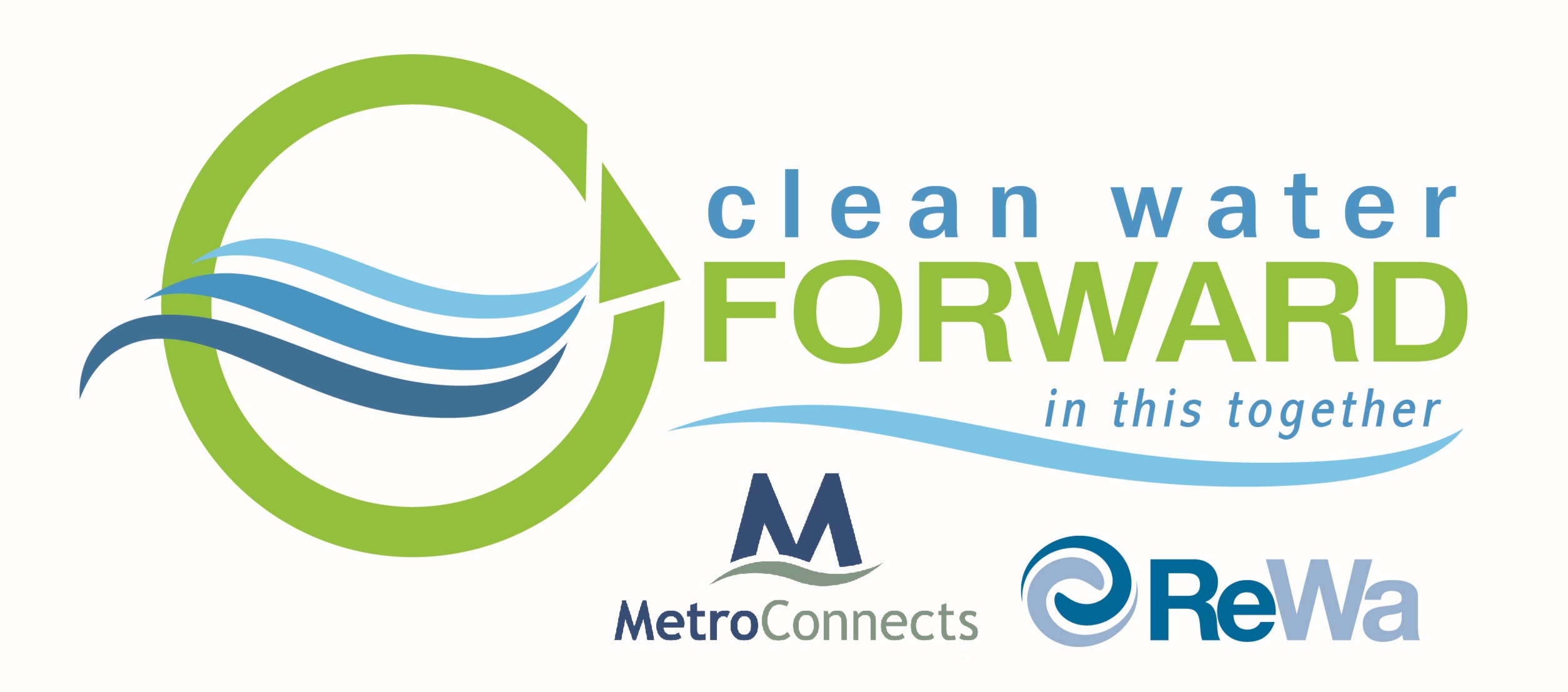It Starts With a Smell…
It might start with a smell … a very, very unpleasant smell that you notice when you walk outside in the morning. Next, you might notice some water in your street. Not the dampness of the sidewalk from last night’s rain, but a river of water coming from somewhere near the road. And then you see it: The manhole just outside your home, gushing wastewater. This is not good. Sanitary Sewer Overflows (SSOs) are dangerous, bad for the environment, and just plain gross. The wastewater that flows out of manholes is contaminated with human waste, which can spread disease and pollute nearby water sources. At a recent SSO training workshop at MetroConnects, Bryan Cully from CDM Smith noted that we at Metro have one job when it comes to sewer: Keep it in the pipes. And that is exactly what we aim to do!
Root Causes
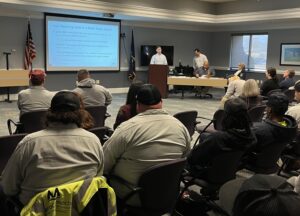
Many factors can trigger an SSO. Most commonly, they are caused by wet weather events. Water from storms enters the sewer system through cracks in pipes and leaks in manhole covers, creating excess Inflow and Infiltration (I&I) of water. This extra water can quickly overwhelm the sewer pipes, pushing its way up through manholes and out onto the street. Other causes of SSOs can involve blocked pipes due to grease build up, debris, roots from nearby vegetation, and trash (which should never be dumped in a sewer).
One commonality across these SSO triggers is that they are ALL preventable. Some prevention measures are longer term, while others involve simple, proactive maintenance. MetroConnects has a plan for both!
Keeping it in the Pipes
In the short term, MetroConnects crews are out in our service areas everyday performing preventative maintenance throughout the county, including regular root control and cleaning of sewer lines. We carefully plan where to perform maintenance to best utilize our resources, performing aerial inspections, SL-RAT (Sewer Line Rapid Assessment Tool) inspections (which uses acoustic transmissions through pipes to help detect blockage), CCTV technology, and smoke and dye testing to ensure that the biggest problem areas are located and addressed first, while we keep up prevention elsewhere to stave off future issues. This not only helps protect the environment, but also helps to stabilize wastewater collection and treatment rates. In the month of December 2022 alone, MetroConnects inspected, cleaned out or cleared roots from a total of 295,654 linear feet of pipe!
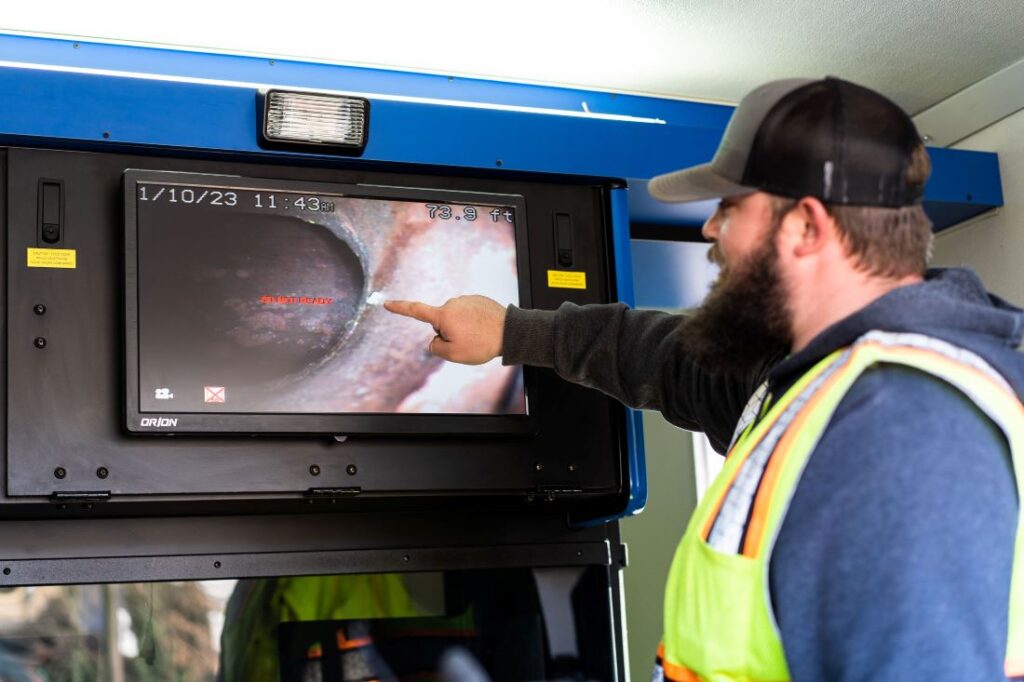
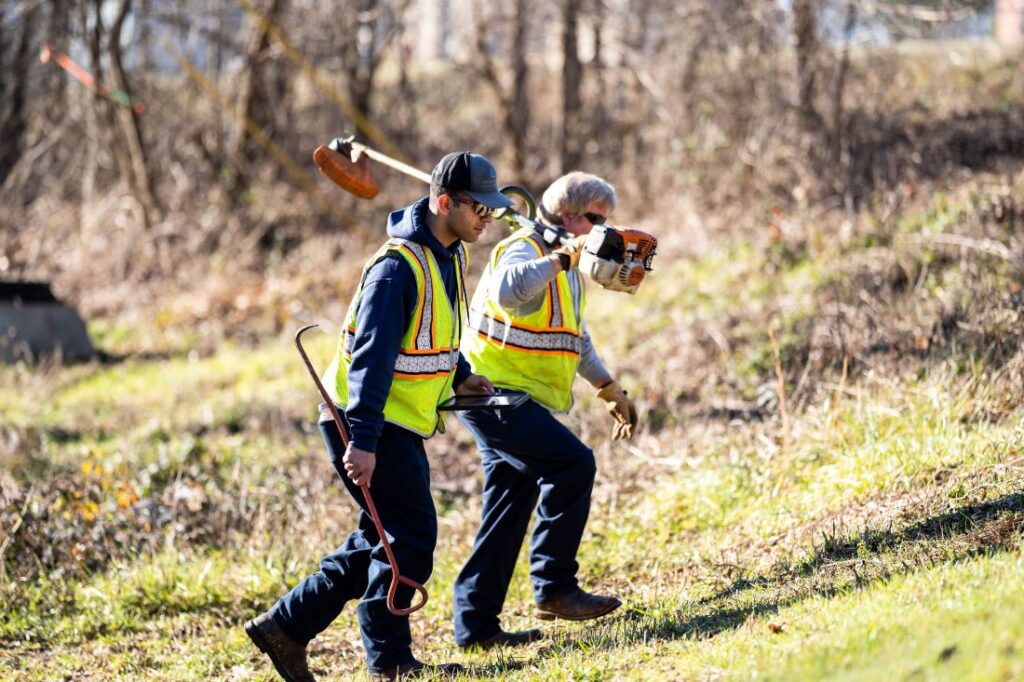
Operations and Maintenance crew provide preventative maintenance using CCTV technology to check for problems in pipes (left) and keeping easements and right-of-ways clear of brush and invasive roots (right).
Looking Forward
Longer term projects involve our Clean Water Forward partnership with ReWa, your local wastewater treatment provider, to drastically reduce I&I throughout Greenville County. Our goals through this and other programs include increasing capacity in our sewer lines to keep up with Greenville County’s rapid growth, and replacing and rehabilitating aging pipes and manholes throughout the county. One state-of-the-art method Metro uses for pipe rehabilitation is trenchless “Cured in Place Pipe” (CIPP) technology. With this method, we can avoid the expense and disruption of digging trenches to replace pipes, and instead use a mesh tubular composite product that is saturated with resin. The tube is sent down into existing pipes to set the resin, and once the resin cures, it becomes a new pipe within a pipe!
Keep an eye out in the historic Gantt and Wade Hampton areas, where MetroConnects is putting two Rural Infrastructure Authority Grants to work rehabilitating pipes and manholes. Other big upcoming projects include sewer replacement in the Dunean and Mills Mill Village areas, where MetroConnects is in the design phases, and sewer replacement in the Union Bleachery Mill Village, for which Metro was awarded $4 million in Congressionally Directed Spending and is in the preliminary stages of planning.
We are in this Together
As MetroConnects partners with ReWa to protect our water and wastewater systems, we are reminded that we are all in this together. Along with MetroConnects’ proactive infrastructure work, we can all work together to prevent SSO’s by protecting our pipes, and in turn, protecting our water, our environment, and our public health. Here are a few things each of us can do:
- Flush only the three P’s — Poop, pee, and (toilet) paper. Feminine hygiene products, paper towels, “flushable” wipes, and anything else other than the three P’s can wreak havoc on your pipes. Be sure to put trash in the trash, not in the toilet.
- Fight the F.O.G. Fats, oils and grease should never go down the drain. As it congeals in the line, it builds up and slows your drain. Combined with a wet weather event, this spells trouble!
- If you see something, say something. If you see water puddled around a manhole, or notice signs, such as old bits of toilet paper nearby (yuck!), call MetroConnects at (864) 277-4442 to let us know. If an SSO has occurred once at a location, it is likely to occur again if we don’t get in there and fix the source of the problem. Remember, we are in this together!
